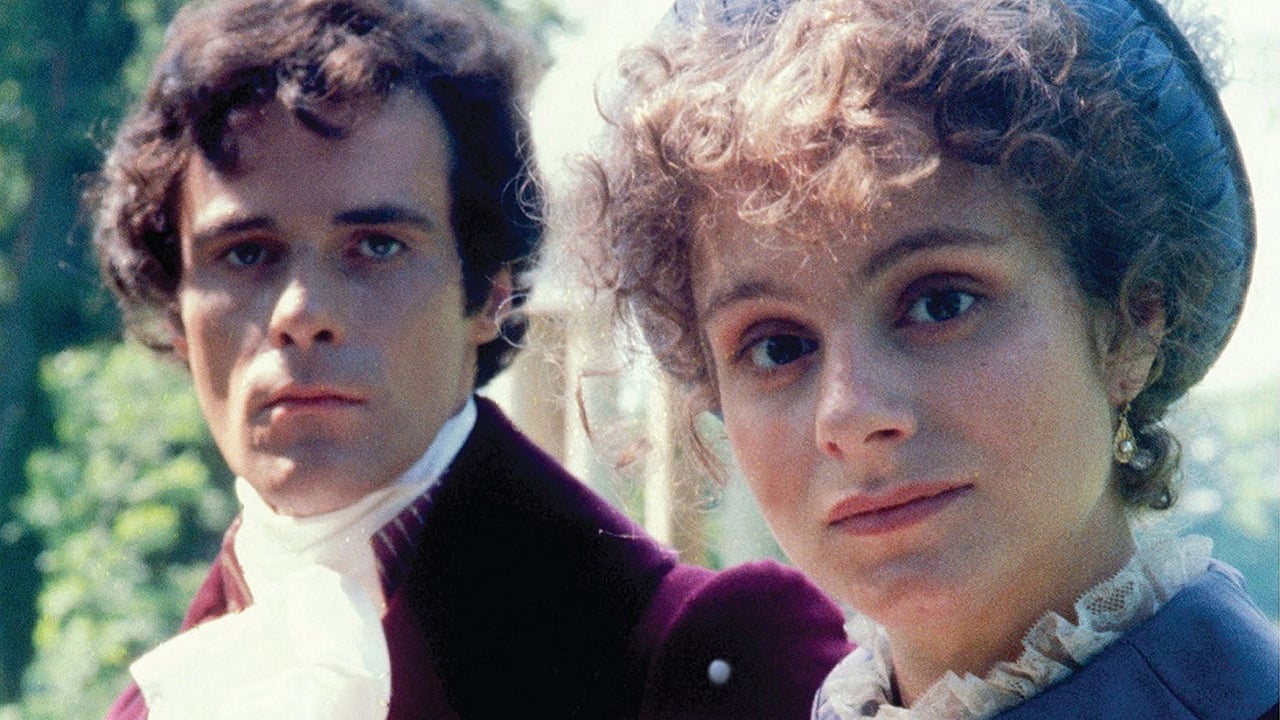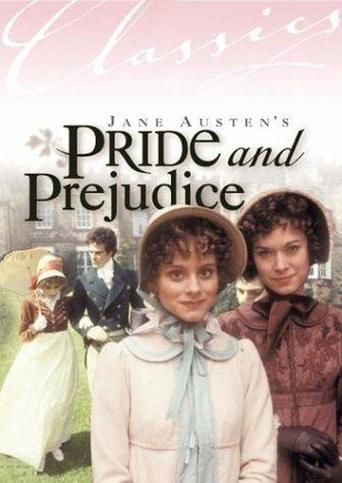BroadcastChic
Excellent, a Must See
Organnall
Too much about the plot just didn't add up, the writing was bad, some of the scenes were cringey and awkward,
Nessieldwi
Very interesting film. Was caught on the premise when seeing the trailer but unsure as to what the outcome would be for the showing. As it turns out, it was a very good film.
Rio Hayward
All of these films share one commonality, that being a kind of emotional center that humanizes a cast of monsters.
SimonJack
This early BBC mini-series of "Pride and Prejudice" is the first production to flesh out most of the significant characters of Jane Austen's novel. Of course, it needed the nearly 4 ½ hours to do that. The production values are very good. The scenery and filming are excellent. The cast is very capable, but only a couple of the performances seem exceptional. Those would be Sabina Franklyn as Jane Bennett and Judy Parfitt as Lady Catherine de Bourgh. Irene Richard also was quite good as Charlotte Lucas. David Rintoul made a striking figure for Fitzwilliam Darcy. But, in his transformation at the end, his character still seemed to be dour. There was no apparent warming and enthusiasm with his love for Elizabeth. Elizabeth Garvie is good as Elizabeth, but I think her character was too uncertain at times. She sometimes seemed wishy-washy. Whether this was from her interpretation of the role, or the director's lead, it seemed to weaken the character. I don't think that's the image of Elizabeth that Austen had in mind. Overall, I just didn't sense much life or enthusiasm in the characters. Before this 1980 mini-series, the BBC had made three other mini-series of P&P — in 1952, 1958 and 1967. But those were all in the 3-hour range, with 30-minute installments. They barely touched on some of the characters. The interest has been there for Jane Austen since at least the last half of the 20th century. So at intervals the BBC would put out a new production. Yet, none seemed to improve on the story. By that I mean, succeeding versions didn't add much more from the story than the earlier ones. And no exceptional stars or role insights emerged. So, the preferred version for many movie buffs over four decades was likely the 1940 film with its cast of big name stars – Laurence Olivier, Greer Garson, Maureen O'Sullivan, Edmund Gwenn, and Edna May Oliver. But, with the 1980 mini-series, we had the first flushing out of characters that were ignored or barely mentioned in the movies and shorter series. While it's not a particularly exciting rendition, the 1980 mini-series production is a good wholesome treatment of Austen's great novel of pride and prejudice. And, it would retain the foremost position of P&P films until 1995 and the last great mini-series on the story. A word to the wise – for those who may want to acquire or watch all the various versions of Pride and Prejudice. Watch this 1980 mini-series version before you watch the 1995 version. The difference will become pleasantly clear when watching the second series. To do it in reverse invites awareness of the differences that will be not so pleasant and may even lead to uneasiness or lack of interest when watching this series last.
diverdiva
This is definitely the quintessential version of P & P! The actors were all perfectly cast and I agree with previous reviewers that Elizabeth Garvie captured the spirit of Lizzie to a 'T' (as did David Rintoul with Darcy). Yes, it's production values are a bit primitive (1979 after all!), but you forget the settings because the script and performances are all so absorbing. True to Jane Austen and completely enjoyable. Quick quibble with some other reviewers, who are obviously Austen fans, but not very 'up' on British history ... P & P took place in Georgian England (George III - late 1700s to early 1800s), not Victorian England (1837-1901). Ms Austen was long dead by the time Victoria ascended the throne!
Hotwok2013
"Pride & Prejudice" is easily the favourite of all of Jane Austen's six published novels. Many literary critics have tried to analyse why her books are still so popular in this day & age around 200 years after they were written. Probably the best reasons are that the themes of her novels, (love & marriage), are relevant at any time period & that she was just so darned good as a writer. Taken purely as a love story It is probably without equal which explains why it has been adapted for film & television so often. This 1980 version stars Elizabeth Garvie as Elizabeth Bennett who plays the sensible & spirited young lady really well but, for me David Rintoul as Fitzwilliam Darcy is even better. To my mind, he plays the proud, haughty & extremely handsome Darcy precisely as written & envisioned by Jane Austen. He is aloof, stiff & unemotional which makes it easy to see why Elizabeth dislikes him so much at first. Quite a number of reviewers of this adaptation of Pride & Prejudice have criticised Rintoul's performance. They claim he plays Darcy with too little emotion & in comparison with Colin Firth's 1995 performance is dull, uninteresting & unromantic. It is true that he isn't as outwardly romantic as played by Colin Firth but I disagree with that criticism. Rintoul nails him precisely as written by Jane Austen & what a shame we cannot get her opinion!. Another standout acting performance is given by Judy Parfitt as Darcy's aunt Lady Catherine De Bourgh. Ms Parfitt has a natural regal bearing combined with a beautifully intoned speaking voice & can just nail an upper-crust woman effortlessly. She also plays her with such a commanding air that you almost cannot help disliking her. That, too, is also true to the spirit of the book as written by Jane Austen. Malcolm Rennie is also excellent as the pompous, somewhat comical vicar Mr. Collins. The scene in which he proposes marriage to Elizabeth & is rejected by her is particularly well played by both of them. Both Priscilla Morgan & Moray Watson are also extremely good as Elizabeth Bennett's mother and father, respectively. Sabina Franklyn also does well playing Elizabeth's very pretty older sister Jane who will fall in love & marry Darcy's best friend Mr. Bingley (Osmund Bullock). Tessa Peake-Jones plays her bookish younger sister Mary who later got a more fames television role as Delboy's love interest Raquel in Only Fools & Horses. Natalie Ogle plays the youngest of the five Bennett sisters Lydia who is fatuous & will enter into a hasty, sham marriage with the handsome, (but deceitful & untrustworthy), Mr. Wickham (Peter Settelen). None of the sisters attend the marriage ceremony & when they return from their honeymoon Lydia is eager to tell her sisters all about it. Elizabeth does not want to know & delivers one of the books most memorable put-down lines. "I do not think there can be too little said on the subject!". There isn't a weak performance by anyone in the entire cast. The 1995 TV production with Colin Firth & Jennifer Ehle was pretty good, but this 1980 BBC production dramatised by Fay Weldon is closer to the book & definitely superior in my opinion.
bellestrange
Pride and Prejudice is one of my favourite books but this series might just be, not only the worst adaptation of P&P, but one of the worst adaptations of anything. The acting is absolutely horrid. The fact that so much of the dialogue is taken directly from the book is completely ruined by the fact that the actors only seem to be blankly reciting the lines, rather than actually bringing any feeling or nuances to them. In the end, I felt nothing for any of the characters. Mr. Darcy only had one facial expression and tone of voice, and Elizabeth possibly two or three. If the 2005 movie is a poor match to the 1995 miniseries, this is still infinitely worse.

